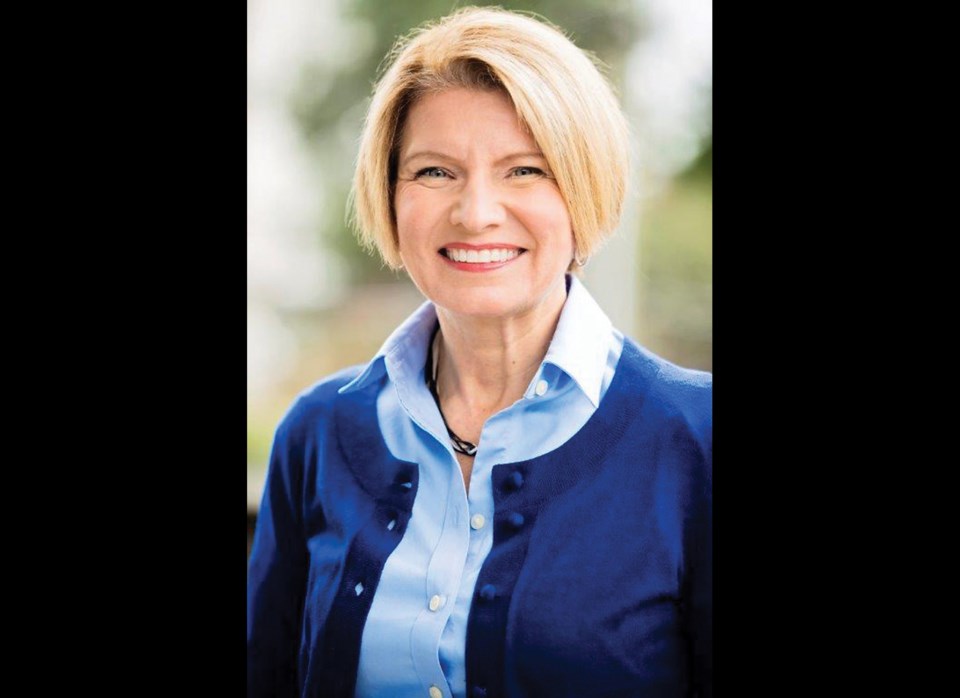Anyone can get COVID - and it’s a worrying, stressful experience to go through. Just ask Mary-Ann Booth, the mayor of West Vancouver.
The West Vancouver mayor is speaking out about her own family’s recent fight with the virus to remind people on the North Shore that the threat of illness is very real.
“I don’t want there to be a stigma attached to getting COVID,” said Booth. With new variant strains of the virus making up between 60 and 70 per cent of cases in Vancouver Coastal Health, “even if you’re super careful, you can contract it,” she said.
“We all think we’re kind of invincible and it’s not going to happen to us.”
Ironically, it was after both Booth and her husband got vaccinated that their own brush with the virus started.
Booth got the AstraZeneca vaccine on April 6, while her husband got his shot April 9. While she experienced only some soreness in her arm and tiredness, “he started feeling quite bad right away,” she said.
At first, both of them assumed what he was feeling was a side effect of the vaccine – the flu-like “AstraZeneca hangover” symptoms that many people experience temporarily after receiving the shot.
Booth said she has a friend who’d experienced similar symptoms post-vaccination, which at the time was reassuring.
But as the weekend progressed, her husband seemed to be getting worse instead of better. “He got aches, he got exhausted, he couldn’t get out of bed,” she said.
By Monday, her husband was concerned enough to drive to the North Shore testing centre. “Twelve hours later they called him and told him he had COVID,” she said.
Although her husband is a healthy 62 year-old with no underlying health conditions, the virus hit him hard, she said, with fever and extreme fatigue.
“I was looking at him in this state that was 10 times worse than a regular flu,” she said, adding they did seek additional medical care at one point because he didn’t seem to be getting any better.
She adds at the urging of her mother, she’d previously bought a home oximeter – a small medical device available online and at pharmacies that measures blood oxygen levels. That helped give her comfort that her husband wasn’t in critical danger.
She left food at the bedroom door and donned protective equipment including gloves and double masks to take away dishes or laundry. “I was talking to him through the door or on FaceTime,” she said. “It was a stressful time.”
Booth adds she has many advantages in terms of having space for self-isolation, ability to order food delivery and a yard to go outside in.
Many people aren’t so lucky, she said.
While both Booth and her daughter who was living at home also went into self-isolation, neither of them contracted the illness.
“Every day I was healthy I was grateful,” she said, adding, “I was so glad I got the AstraZeneca vaccine.”
Booth admits she had initial hesitancy because of concerns about rare blood clots associated with the vaccine. “But the risks are way higher with the virus,” she said.
Booth said they still don’t know where her husband – a lawyer who has been mostly working from home - contracted the virus, although contact tracers called every person he’d been in contact with.
“The variants are more contagious,” she added. “It’s a bit of a different animal now.”
Booth has been able to continue working from home while spending the last two weeks in isolation – which ends on Sunday – but decided to go public with her family’s experience after being forced to miss some public events. Their experience is a good reminder of the need to stay vigilant in the latest phase of the pandemic, she said, despite over a year of COVID rules and restrictions.
COVID case counts have recently spiked on the North Shore, with 327 new cases of COVID-19 reported for the week ending April 17, marking the third week in a row that cases have risen above 300.
“The longer the time goes on, there's a tendency to get more complacent,” she said.
“It’s a real wakeup call. If my husband can get it, anybody can get it.”





